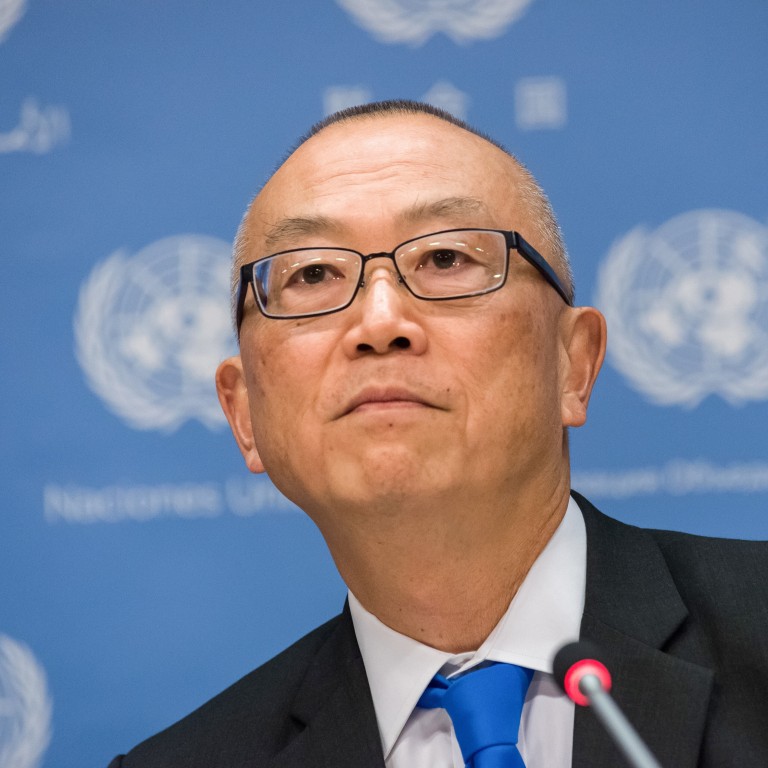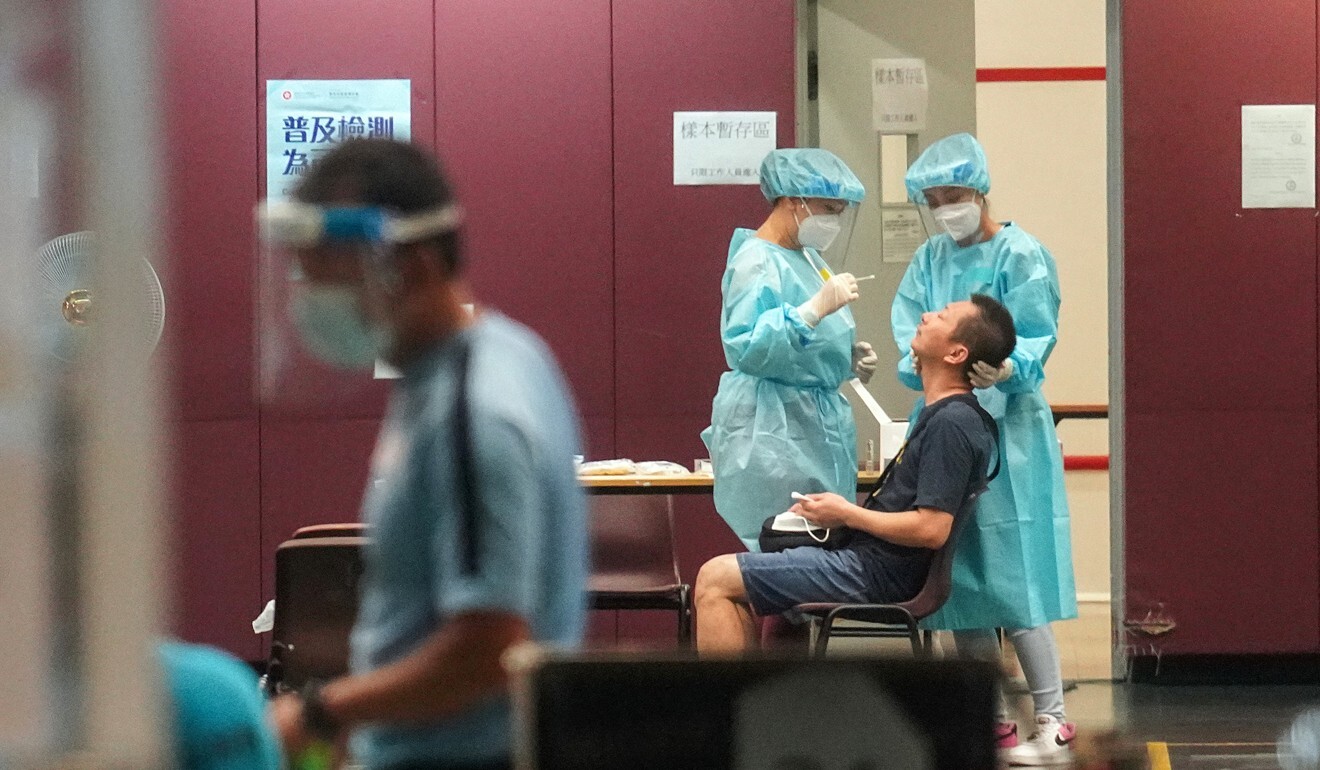
Government Covid-19 adviser Keiji Fukuda to leave University of Hong Kong’s public health school in late 2021 after contract not renewed: sources
- A former top figure at the World Health Organization, the 65-year-old has frequently discussed the city’s pandemic situation in global media appearances
- HKU spokesman says retirement age for all staff is 60 and decisions on appointments are based on academic achievements and university’s needs
A leading Covid-19 pandemic control expert who has passed the official retirement age at a top Hong Kong university will step down as head of its public health school by the end of next year after his contract was not renewed, sources have confirmed.
A source said the decision was made last week, four years after the 65-year-old professor, Keiji Fukuda, joined the school of public health at the University of Hong Kong on a contract-based arrangement in 2016. He was promoted to school director in 2017.
Hong Kong’s fourth wave: When will it hit, who will it affect and how to curb it?
An HKU spokesman declined to comment on whether vice-chancellor Professor Zhang Xiang had vetoed a new contract for Fukuda, despite the faculty reportedly agreeing to renew it.
“Professors who are reappointed after the retirement age, especially after the age of 65, are rare cases who display exceptionally high levels of academic achievements,” the spokesman said in a statement on Wednesday.
He said the retirement age for all HKU staff was 60, adding that decisions on appointments were based on academic achievements and the university’s needs.
Other medical experts were quick to praise Fukuda after news of the departure emerged.
“We are good friends. He is capable and very knowledgeable about all kinds of infectious diseases,” Chinese University’s Professor David Hui Shu-cheong told a Wednesday radio programme. “He is absolutely a talent in the field of public health.
“In the fight against the new coronavirus epidemic, Keiji Fukuda gave a lot of advice on how the government should disseminate information on infectious diseases to the public.”

Fukuda previously led World Health Organization (WHO) teams to Saudi Arabia and South Korea in 2013 and 2015 during outbreaks of Middle East respiratory syndrome (Mers). Hui was a member of both.
“He is a top public health expert with good international connections. His communication skill with the public and the media is superb having been the WHO spokesperson on infectious diseases for many years,” Hui said. “I believe his departure will affect HKU and Hong Kong.”
In Hong Kong, academics’ contracts can be renewed once for five years after reaching the retirement age of 60, Hui noted. After that, the vice chancellor decides on further renewals on a case-by-case basis.
Fukuda and Hui, along with professors Gabriel Leung and Yuen Kwok-yung, also of HKU, are the four government advisers who have helped the administration formulate strategies for combating Covid-19 in Hong Kong.
Amid the pandemic, Fukuda often gave global and local media interviews, praising Hongkongers for taking Covid-19 seriously and learning from the severe acute respiratory syndrome (Sars) epidemic in 2003.
The Post has contacted Fukuda and the faculty of medicine at HKU seeking comment.
Before joining HKU, the 65-year-old expert spent about 12 years at WHO. His last position there was assistant director general for health security and environment.
The Tokyo-born doctor was also a former special adviser to the director general at WHO on pandemic influenza and a special adviser for antimicrobial resistance and director of the global influenza programme.
During his time at WHO, Fukuda led global approaches to strengthen health security, including the implementation of international health regulations designed to better respond to such events as the emergence of influenza H5N1 and H7N9, the 2009 pandemic influenza, Mers, Ebola and antimicrobial resistance (AMR).
Fukuda was also often the WHO’s main global media spokesperson on health security and AMR.
Before joining the international organisation, Fukuda worked at the Centres for Disease Control and Prevention in the United States as the chief of epidemiology.
Fukuda personally led field teams that helped Hong Kong during the 1997 H5N1 bird flu outbreak, and worked extensively in China on issues including influenza surveillance, Sars and influenza H7N9.
Additional reporting by Zoe Low

